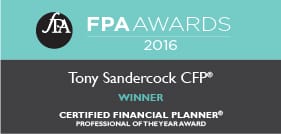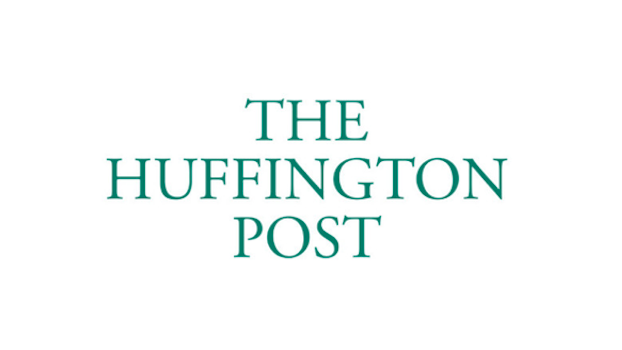07 5440 5794
|
Ignorance about investing is not bliss… it’s expensive. What you don’t know about investing will cost you money. But the cure is simple – proper research. Proper Research is what separates the professional investor from the amateur. Amateur investors act irresponsibly by risking their hard earned dollars on hunches, articles they read, recommendations from product salesman or hot tips, without first performing due diligence. This approach is just asking for trouble. Professional investors do the opposite. They take a long, hard look before putting a cent of capital at risk. Yes, it can be painful and sometimes difficult, but getting answers to the tough questions up front can save you from expensive losses down the road. There’s simply no substitute for proper investment research because it’s what you don’t know about the investment that will cost you. Make sure you don’t miss a trick with these 6 “investor savvy” questions. Research Question # 1: How Can I Lose Money With This Investment? This question is so important I’m tempted to throw away the remaining five questions and just keep repeating this one over and over. You don’t properly know an investment until you understand all the ways you can lose money with it. I can’t overemphasise the importance of this question. You must first focus on the return of your capital, and only then concern yourself with the return on your capital. The first question when analysing any investment is to find all the ways you can lose money by identifying in advance all the major risks that can lead to losses. Once these risks are fully identified, the second step is to minimise these risks wherever possible. I explain this two-step due diligence process in greater detail in the free EBook version of this Blog. Press here to have this sent to your inbox. Research Question # 2: How Will This Investment Help Me Achieve My Objectives? Sound like a silly question? The old adage, “If you don’t know where you are going, you will probably end up somewhere else,” is as true of investing as anything else. Your investment objectives might be to maximise profit while minimising risk, or just achieving a particular return or even receiving a certain amount of income. But it’s not enough to just have a portfolio objective – you must have a personal objective too. Financial success is a lifelong process, the only way you’ll stay the course long enough to succeed is when your investment strategy fits your budget, your interests, your skill level and your lifestyle goals – that is a recipe for success. My 25 plus years of talking to people about their money has proven to me that if you have clear objectives, you'll do better with your money - clear objectives give you purpose, direction and focus. Get the free extended EBook version of this blog to find out how to put together your own winning strategy. Press here to have this sent to your inbox. Due Diligence Question #3: Can I Easily Get Out Of This Investment? Always begin with the end in mind. Why? Because not every investment will be right forever. Times change, investments change, you change. You had a reason for buying an investment, and when those reasons no longer apply, it’s time to move on. By knowing your reasons in advance, there’s no confusion or hesitation with the sell decision. Download our Free EBook version here of this blog to learn how to plan your exit strategy. Due Diligence Question #4: How Much Do I Expect To Earn On This Investment (And Is That Realistic)? Early in my career, a couple of very powerful phrases were drummed in to me:
But are they true? The answer is that both of these statements are ridiculous. Let’s stick with the share claim. I took some time this week to ask some industry colleagues their thoughts on this issue. Some say 10%, and a great deal of them say somewhere in the range of 8% before costs and taxes. “If someone is relying on a 12% return to get them to retirement or pay for their kid’s schooling and that return doesn’t materialise, they are in a world of hurt with very limited and unattractive options. 7% (assumed rate of gross return for a diversified investment) allows me to focus on what a client can control: their savings rate,” noted one fee-only financial advisor. Press here to find the FACTS about long-term returns and what that can mean for your retirement. Due Diligence Question #5: Does This Investment Make Sense After Fees and Taxes? Successful investing is about what ends up in your pocket. And depending on the investment you have, it can sometimes be hard to nail down exactly what you’ve earnt after all the costs and taxes are taken in to account. But you have to. While moves in the market are temporary, costs are permanent. Over time, they can put a real dent in your wealth plans. That's why you MUST be mindful of fees and expenses. Studies show that cost is actually the single best predictor of future investment performance for some investments. Leading research organisation Morningstar even found that cost predicted the future performance of managed funds better than their own widely-used star rating system. In our FREE EBook version of this blog, we’ll show you how to calculate the true rate of return on your investment. Click here for your copy. As well, we’ll show you how the impact of fees and taxes on three very common investment strategies can mean things may not look as rosy as they first seem. Research Question # 6: How Does This Investment Fit In With What I Already Have? No investment decision should ever be viewed in isolation. You aren’t just buying a share or a bond or a managed fund or a rental property - you are buying an additional piece of your personal investment jigsaw puzzle. And each piece must interlock. Just because it looks good on its own does not mean it will fit in well with what you already have. In my experience, more wealth is destroyed by poorly balanced portfolios than any other cause. Yes, apples are good for you, but if that’s all you eat, you’ll eventually get sick. Download our FREE EBook version here of this blog to learn more about WHY balance is so important and HOW you can achieve it. Summary So there you have it. Investing can be a successful or disappointing experience, depending on how well you do your research. Getting the answers to the tough questions up front can save you from expensive losses down the road. A quick review of the six “must ask” research questions is:
That list is just a start. You could write an entire library of books on the subject. My goal with this article was to arm you with some of the more important due diligence questions that can help you avoid the most obvious and expensive errors. I hope it helps you. Download the FREE and extended version of this blog here. IMPORTANT This information is of a general nature only and may not be relevant to your particular circumstances. The circumstances of each individual and investor are different and you should not act on this information without speaking to a financial, tax or legal adviser, who can consider if the financial product and strategies are appropriate for you. To the extent permitted by law, no liability is accepted for any loss or damage as a result of any reliance on this information. See full Terms and Conditions here.
Peter
7/7/2016 10:31:57 am
Another great read Tony, well done!!
Reply
Tony
8/7/2016 07:58:24 am
Thanks Pete, talk soon.
Reply
Real Estate Investor
17/8/2016 06:36:48 am
Tony, I think property can double every seven years if you make the right choices. My Sydney portfolio has done very well. But I take your point, property overall hasn't, nor do shares overall earn 12%, although some individual shares will.
Reply
Your comment will be posted after it is approved.
Leave a Reply. |














 RSS Feed
RSS Feed

18/7/2016
3 Comments